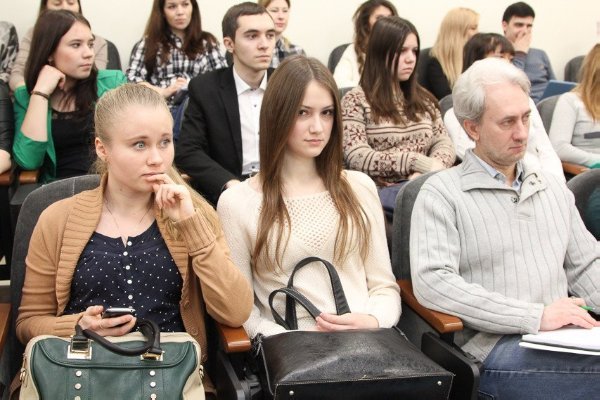Rustem Davletbaev, the member of Eurasian Economic Club of Scientists made KFU?s community consider if the alternative currency may be panacea to the crisis events in economics at least at the local level.
The expert in economics who is renowned for invention of "shaymuratiki", the real functioning alternative currency system, started his public lecture with the question "What is the money?" While students of the Institute of Management, Economics and Finance were trying to remember all known definitions, the lecturer told them about the Great Depression. Historical background prepared the audience to the lecture's topic.

It is commonly known that the first wave of alternative monetary systems started exactly in 1930-s. In this period many European and US companies paid their employees wages in vouchers meant to be used in companies' shops in exchange for the goods. The attitude towards the alternative monetary systems from authorities of different states was highly negative. The idea of their application was perceived as anarchical, socialistic, communistic, i.e. contradictory to capitalism and traditional values. The use of Schwanenkirchen currency (Germany) was prohibited in 1931; the monetary system of Austrian Wörgl was cancelled in 1933.
Both mentioned experiments with local currency were based on Silvio Gesell's theory of free economy. Rustem Davletbaev addressed his ideas in 2011. He involved Artur Nurgaliev, CEO of the agricultural company located in Shaymuratovo village. At that moment the company was at the verge of bankruptcy, and introduction of tradable coupons ("shaymuratiki", popularly) secured on the goods from local shops was a measure to save it.

According to Mr. Davletbaev, the main goal of local currency introduction was to persuade people that money itself does not have value. It is the system of economic processes management. That's why authors of "shaymuratiki" implemented demurrage; after each 28 days the coupons lost 2% of their value. To save the money was inefficient.

R. Davletbaev proudly said, "As the experiment showed we were in need of 10 months to achieve the result". When the public prosecutor officers offered the company's employees to make a choice between national or local currencies at the third year of the experiment the village dwellers chose the real goods. R. Davletbaev considers this change in people minds its main achievement. The compromise with the prosecutor's office was as followed: the salaries will be paid in rubles.
The member of Eurasian Economic Club of Scientists declared that the world money may disappear in the nearest future. He explained that the US dollar and Euro are world currencies. However, various countries such as Russia, China, Iran reject calculating in dollars and euros. India is thinking over this opportunity, Greece has been threatening to leave the Eurozone for several years. The importance of regional currencies may be highly increased; they will serve as a catalyzer for overcoming the economic crises.
However, KFU experts warn: issues connected with alternative currency emission must not be solved offhandedly. Papers emitted at least need to be secured by real values at an adequate level.
Igor Kokh, the head of the Department of Securities, Stock-Exchange Industry and Insurance:
- In my opinion, it is not the best idea to use alternative currency systems. We have already multiply passed that through. Such periods have always been connected with crisis state of economy. In the twenties and nineties of the previous century the authorities were making attempts to introduce quasi-money both in individual companies, and at the city and regional levels. But the decision taken each time was to reject such means of payment. With the economic situation stabilisation we perceived the necessity to return to all-pervasive means. In individual cases money in cash can be replaced in the same manner as notes (of hands), but they become invalid when going beyond these bounds. I am not a supporter of such ideas and suppose that they won't bring any positive results.
Ildar Albaev, Professor of the Department of Economic Methodology and History:
- Quasi-money creation permits to escape payment instrument deficit, the so-called pressure for money. However, if we move in this direction we need to emit not funny money, but equities secured by gold. Thus we can partially avoid dependence on dollar. Russian financial system needs to be changed and made independent at least to a certain extent. Any means suit to revive economy.